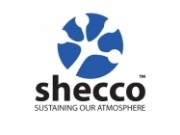1 July 2013, Bangkok – A global phase-down of hydrofluorocarbons (HFCs) under the Montreal Protocol will drive the development of super-efficient air conditioning and refrigeration that in turn reduces energy use and carbon dioxide pollution, according to representatives from the global air conditioning and refrigeration industry, meeting 30-31 June in Bangkok to showcase progress in developing high-efficiency, climate-friendly alternatives to HFC refrigerants.
In addition to the significant climate benefits from phasing down HFCs, deploying super-efficient air conditioners can significantly reduce energy use and carbon dioxide pollution by 2020 and avoid the need for more than 100 medium-sized (500-megawatt) power plants, according to a 2013 assessment commissioned by the Super-efficient Equipment and Appliance Deployment (SEAD) Initiative of the Clean Energy Ministerial, a forum that brings together ministers with responsibility for clean energy technologies from the world’s major economies and ministers from a select number of smaller countries leading in various areas of clean energy.
The energy savings from super-efficient air conditioners and refrigeration have the important benefit of easing pressure on aging electricity grids, especially in developing countries. In India, for example, air conditioners account for 40% to 60% share of peak electricity demand during the summer months in many cities. Super-efficient air conditioners and refrigeration also save money for consumers and businesses.
Industry associations and businesses from Europe, Japan, and the U.S. supported controlling HFCs under the Montreal Protocol to ensure a level playing field and provide the regulatory certainty firms favor when making decisions about how much to invest in new climate-friendly technologies to replace HFCs and the inefficient equipment using these chemicals. The alternative is a growing patchwork of national and regional HFC regulations.
“The business case for natural refrigerants as alternatives to HFCs is growing day-by-day. In commercial refrigeration we already have several thousand new food retail stores worldwide using either CO2 (R744), ammonia, or hydrocarbons. The customers for these new technologies are buying them because they are more energy efficient. Any pro-active policy can only help accelerate this transition," said Marc Chasserot, Managing Director, Shecco.
Article continues: http://www.igsd.org/news/documents/TechConfPR1July131005amEDT.pdf
